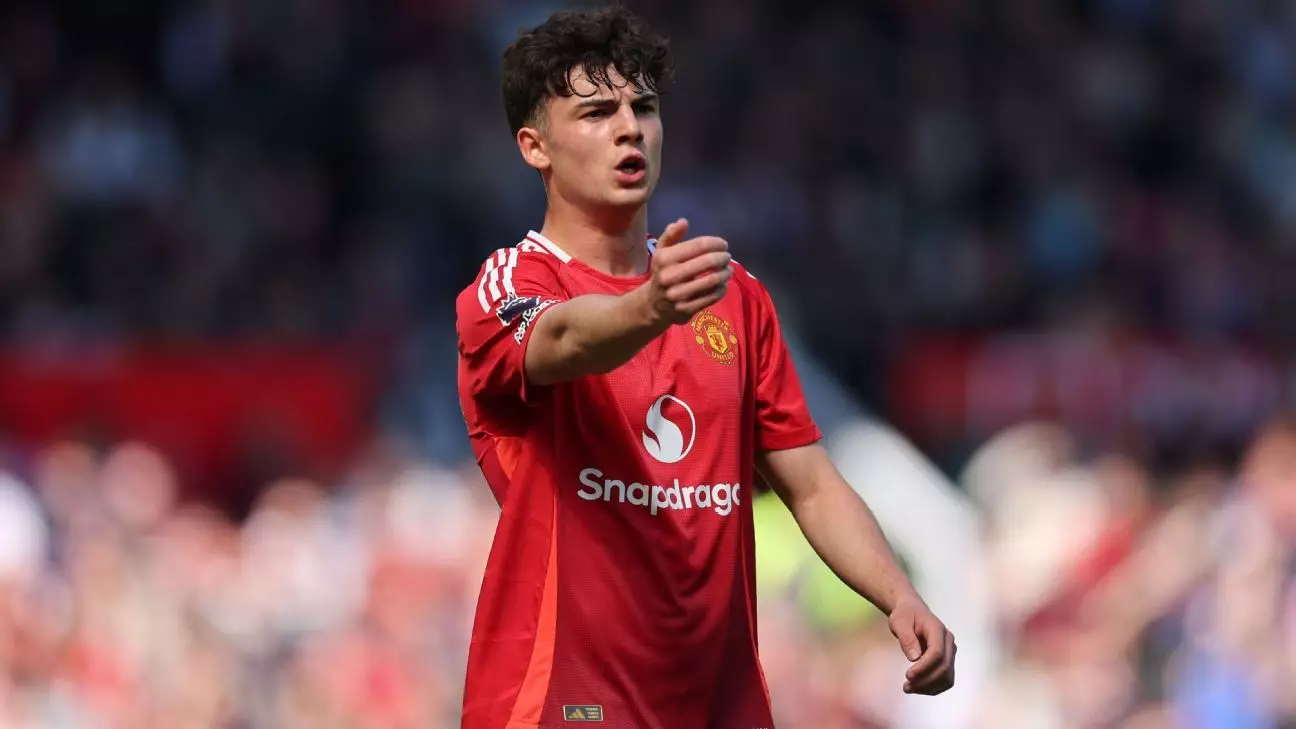As Manchester United faces the harsh truth of a lackluster Premier League performance this season, the spotlight shifts dramatically to their Europa League ambitions. A stinging defeat against Wolverhampton Wanderers at Old Trafford has pushed the illustrious club to a crossroads where the stakes have never been higher. Once iconic in their play and prestige, United now teeters on the brink, striving to re-establish ownership over their historical dominance.
The defeats have been harsh, particularly at home, where they recently surrendered to Wolves, marking their 15th league loss of the season. This troubling statistic calls into question the strategy employed by manager Ruben Amorim. Is there a glimmer of hope amid such disarray, or is this simply an exercise in futility as the team heads toward potentially disastrous territory, teetering just above relegation fears?
Unveiling Young Talents
One silver lining amidst this chaos lies in Amorim’s willingness to trust young talents. The introduction of Tyler Fredricson, along with Harry Amass and Chido Obi, speaks volumes about an attempt at rebuilding from the ground up. In seasons past, the emergence of youth players represented a lifeline for clubs in despair. For Fredricson, making his senior debut despite a backdrop of injuries was a remarkable moment and a testament to his perseverance.
His integration into a first-team that has frequently faltered is a noteworthy achievement. The young defender showcased composure that belied his inexperience; initial apprehensions melted away as he displayed his positional awareness and tenacity. Despite the disheartening result against Wolves, Fredricson’s performance highlighted that the future may not be as bleak as it seems, given that youth can breathe life into a stagnating squad.
Confidence on the Line
However, as much as excitement burgeons around promising prospects, the reality remains stark: the club’s European aspirations hinge considerably on confidence. Rasmus Højlund’s performance encapsulates this struggle, with the young striker failing to find the net in what felt like an eternity on the pitch. Missing golden opportunities does a number on a player’s psyche, and Højlund, in particular, bears the brunt of not just the fans’ frustrations but his own. His struggles serve as a microcosm of United’s larger issues—an apparent disconnect between individual brilliance and team synergy.
After the game, Amorim aptly pointed out that, although Højlund carries the burden of being a striker expected to score, it reflects a broader team issue. The lurid truth is that this Manchester United reflects a group lacking cohesion, where even the most talented individuals falter under the weight of expectation.
A New Era or More of the Same?
As United historically grapples with fading out of title discussions and laboring to secure a position – any position – amid the Premier League landscape, one has to wonder: is Amorim merely a temporary fix, or does he embody a necessary overhaul? The club’s rich soccer tradition demands more than mere survival; it needs revival. The prodigious young talents like Fredricson hint that there is a blueprint for success, but is the club ready to embrace the impermanence of a transitional phase?
Meanwhile, Wolves’ success represents a sober reminder of United’s steep decline from the heights of English football. The notable resurgence of Wolves from relegation fighters to a team that confidently defeated United amidst their home ground speaks volumes. Vitor Pereira’s tactical acumen led them to depart from perilous waters, underscoring what United so desperately craves: stability wrapped in a successful approach.
This narrative raises alarming questions about United’s outlook if they even finish the season above a relegation position. The soft whispers of discontent among fans have gradually morphed into outright skepticism about long-term strategy. Their remaining fixtures hold the potential for either recovering the pride of a once-great club or.
The Fragile Future
With the looming Europa League match against Athletic Club fast approaching, the stakes could not be higher. For Ruben Amorim, this is more than a mere tournament; it’s an opportunity to validate his managerial tenure and establish a foundation for the next season. United’s die-hard followers will inevitably hold their breath as resilience is tested.
In the narrative of Manchester United being etched into the history books, the emphasis on youth development may become the rallying cry as the club looks to reclaim its lost glory. Yet, regardless of how many young talents ascend into the spotlight, the fundamental question remains: can they couple their brilliance with a winning mindset amid the storm cloud that looms over Old Trafford? The answer is yet to unfold, but for now, hope and anxiety are precariously entwined.

